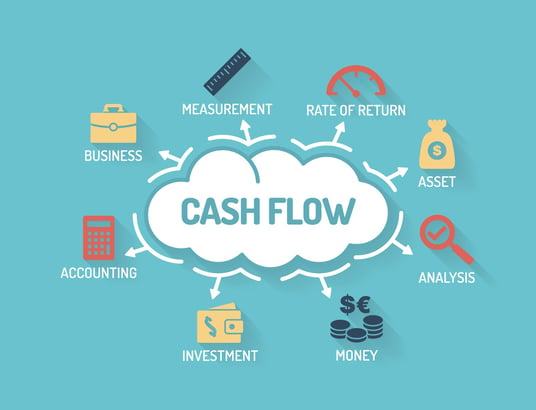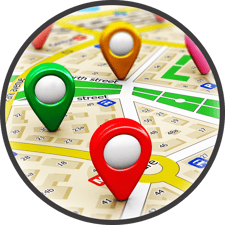Balancing the checkbook of accounts payable and accounts receivable isn’t the most exciting or glamorous part of managing your business’ operations, but it is a vital one. Keeping an eye on your cash flow, or the rate at which your business takes in money vs. its expenses over a defined period of time, can do a lot to tell you about how healthy your operations are.

Positive cash flow helps ensure that your business has the money on hand to pay employees and vendors in a timely manner (which is good, because nobody likes getting paid late).
Your vehicle fleet can have an enormous impact on your business’ overall cash flow. Efficient fleets help to minimize expenses and increase productivity; which improves cash flow. Inefficient fleets increase expenses and reduce productivity—harming your cash flow.
So, how can you improve your company’s cash flow? A good place to start would be using GPS tracking equipment for your vehicle fleet.
Minimizing Fleet Expenses with GPS Tracking
 One of the biggest benefits of using GPS tracking systems is that it can help you minimize your fleet’s expenses.
One of the biggest benefits of using GPS tracking systems is that it can help you minimize your fleet’s expenses.
It may seem odd that adding a new piece of equipment would reduce costs, but here’s how:
- Improving Maintenance Scheduling. How much money does it cost to replace a timing belt or change a vehicle’s oil at a shop or your own garage? Now, how much does it cost to have that same vehicle towed and given more extensive engine repair? With remote diagnostics and detailed mileage records, GPS tracking systems can help identify which vehicles need preventative servicing so you can make smaller, more affordable fixes.
- Preventing Fuel Fraud/Theft. Fuel theft/fraud can be a major problem that occurs when drivers over-report their fuel use to get increased compensation, or share their fuel cards with others. GPS tracking devices allow you to closely monitor actual distance traveled and time spent in idle so you can see if the reported fuel consumption matches recorded travel.
- Reducing Vehicle Theft. Integrated GPS systems are very good at helping prevent vehicle theft and increasing vehicle recovery rates for stolen vehicles. By being able to share GPS tracking data with law enforcement, you can massively increase your chances of recovering a stolen vehicle intact and avoiding having to replace the vehicle.
- Lowered Insurance Costs. Some insurance carriers offer special discounts for vehicle insurance when GPS tracking systems are installed. GPS trackers limit theft and loss risks, so the insurer may be able to offer a reduced rate. It’s important to note that the availability and size of the deduction will vary from carrier to carrier.
By improving maintenance, preventing theft, and reducing insurance expenses, the savings offered by GPS tracking devices can easily outweigh their costs. But, the benefits of GPS tracking for your cash flow don’t end there.
Improving Productivity with GPS Tracking
 Aside from cutting certain costs, GPS tracking can help some organizations increase their cash inflow by increasing overall productivity.
Aside from cutting certain costs, GPS tracking can help some organizations increase their cash inflow by increasing overall productivity.
The benefit to cash flow may vary from one type of business to the next, but common ways that GPS tracking can improve productivity include:
- Keeping Drivers On Task. When drivers take detours for personal errands or simply sit idle while on the clock, not only is that burning fuel and wearing out vehicle components, it takes away from that vehicle’s overall productivity. GPS allows you to know how effectively each driver uses their time behind the wheel so you can prevent wasteful behaviors.
- Planning More Efficient Routes. One of the most prevalent uses of GPS is as a navigation aid—helping drivers find their way around unfamiliar roads and planning new routes around major traffic jams. This helps drivers get where they’re going faster. For businesses, this means more completed deliveries or service calls over a given period of time.
By getting more done with each vehicle, businesses can increase their work capacity without having to add more vehicles and drivers to the fleet.
For some businesses, this means more customers served (and billed) each month per vehicle. Being more efficient could also help to increase customer satisfaction and retention for some businesses—preserving the cash inflow they already have.
Learn more about how GPS fleet tracking could help improve your fleet management and cash flow today!






